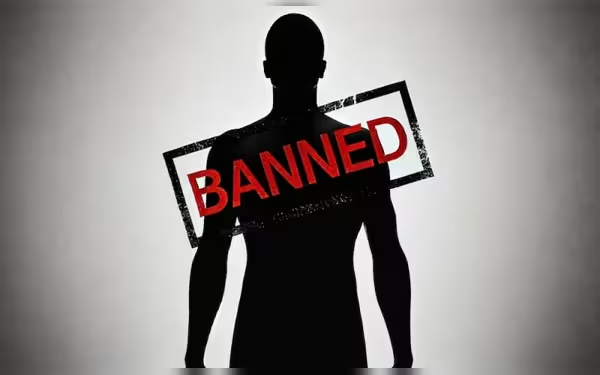Saturday, November 16, 2024 09:37 PM
Fourth Schedule Controversy: Terrorism or Dissent Suppression?
- Fourth Schedule used to monitor suspected terrorists.
- Critics claim it silences political opposition.
- Debate on balancing security and civil liberties.
 Image Credits: dawn.com
Image Credits: dawn.comThe Fourth Schedule in Pakistan raises concerns over its use against dissent versus combating terrorism.
The Fourth Schedule in Pakistan has become a focal point of debate, especially in light of recent events surrounding the Pashtun Tahafuz Movement (PTM). This list, which is part of the Anti-Terrorism Act, is designed to monitor individuals suspected of involvement in terrorism or extremist activities. However, critics argue that it is increasingly being used to silence dissent and stifle political opposition.
Earlier this month, following a ban on the PTM, Interior Minister Mohsin Naqvi announced that the governments of Khyber Pakhtunkhwa (KP) and Balochistan had placed 54 and 43 individuals, respectively, on the Fourth Schedule. This action has raised eyebrows and sparked discussions about the true intentions behind such measures. The process of adding individuals to this list involves recommendations from provincial governments and police authorities, in collaboration with district-level intelligence committees that comprise various law enforcement and intelligence agencies.
Supporters of the Fourth Schedule argue that it is a necessary tool for combating terrorism and ensuring national security. They believe that monitoring individuals who may pose a threat is crucial for maintaining peace in the country. However, the growing number of individuals being added to this list has led many to question whether the government is using it as a means to suppress voices of dissent, particularly those advocating for the rights of marginalized communities.
As the situation unfolds, it is essential to consider the implications of the Fourth Schedule on civil liberties and political expression. While the fight against terrorism is undoubtedly important, it should not come at the cost of silencing legitimate political discourse. The balance between security and freedom is delicate, and it is vital for the government to ensure that measures taken in the name of national security do not infringe upon the rights of citizens.
The debate surrounding the Fourth Schedule is not just about combating terrorism; it is also about protecting the fundamental rights of individuals. As citizens, it is our responsibility to remain vigilant and advocate for a system that prioritizes both security and freedom. Only then can we hope to foster a society where dissent is not equated with terrorism, and where every voice can be heard without fear of retribution.













